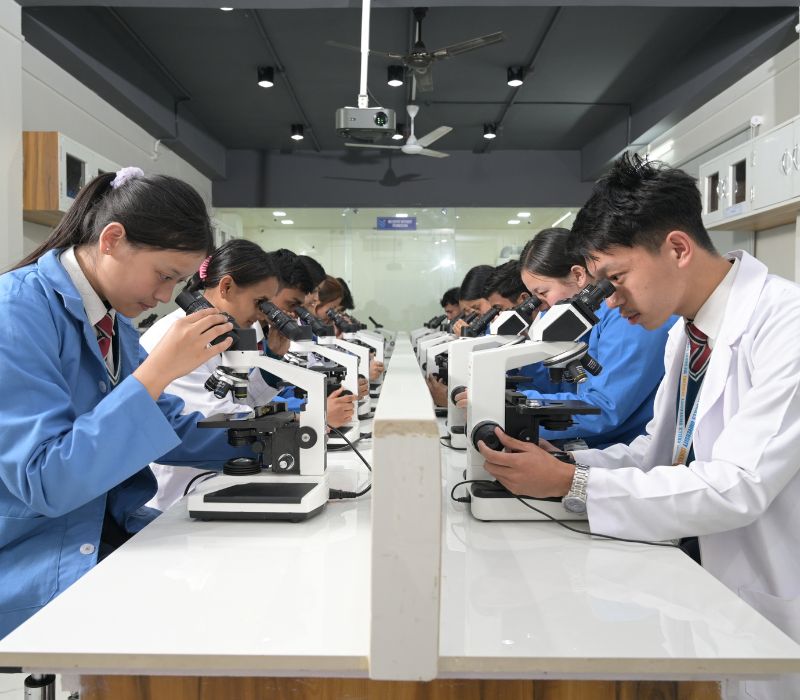Program Overview
The Master of Science (M.Sc.) in Microbiology is a two-year postgraduate program that provides in-depth knowledge of microorganisms, their physiology, genetics, and their role in various industrial, medical, and environmental applications
The program of M.Sc. in Microbiology explores the study of microorganisms, including bacteria, viruses, fungi, and protozoa. Students learn about microbial behaviour, genetics, and their role in human health, disease, and the environment. The program covers laboratory techniques, immunology, and microbial biotechnology, preparing graduates for careers in healthcare, research, and industry. It equips students with the skills to understand and address microbial challenges, contributing to advancements in medicine, environmental science, and public health.


MSU Advantages
The flexible learning design of this M.Sc in Microbiology program also allows personalized education. This makes MSU an ideal choice for future-ready microbiology professionals. Explore some of the advantages of studying M.Sc in Microbiology at MSU:
Program aligned to NEP 2020
Focus on Learning Outcome Based Education
Industry-Aligned Curriculum
70% Curriculum includes Skill Component
Hands-On Learning and On-Job-Training
Learn from seasoned microbiologists and other professionals
Immersive Industry Exposure through industry visits, guest lectures, and networking opportunities
Opportunity to ‘Learn and Earn’
State-of-the-art microbiology lab for practical learning
Engage with industry experts providing invaluable insights and real-world perspectives

Do-Experience-Learn
Experience hands-on learning in our Microbiology and Biochemistry Lab, where theory meets practice through practical exposure to microbial culture techniques, biochemical testing, and more






Eligibility Criteria
B.Sc. (Biotechnology / Biochemistry / Microbiology / Botany / Zoology / Life Sciences / Biomedical Sciences / Chemistry) and B.Pharm.
Academic Framework
A curriculum designed to develop advanced microbiology expertise, paired with a clear pathway to diverse global research and healthcare careers
Steps to Follow for Application





Program Specific Outcomes
M.Sc. in Microbiology should be able to do:
PSO 1
Develop a deep understanding of microbial metabolism, genetics, and molecular biology. Students should be able to apply this knowledge to analyze microbial behavior and functions at the genetic and biochemical levels.
PSO 2
Gain expertise in the molecular mechanisms of microbial infections, the interaction between pathogens and host cells, and the body's immune response. Students should also develop the ability to explore advanced concepts in immunology, vaccine development, and antimicrobial resistance.
PSO 3
Develop the skills necessary to design, conduct, and analyze independent research projects in microbiology, contributing original knowledge to the field. Students will also learn to critically evaluate research literature and data.
PSO 4
Acquire advanced knowledge in environmental microbiology (e.g., biodegradation, bioremediation) and industrial microbiology (e.g., fermentation technology, biofuel production, food safety).
PSO 5
Explore the application of microbiology in biotechnology, including genetic modification of microorganisms for the production of bio-products, pharmaceuticals, and biofuels. Understand the ethical and safety considerations of microbial biotechnologies.
PSO 6
Develop the skills to perform microbiological diagnostic tests, including pathogen identification and antimicrobial susceptibility testing. Understand the clinical relevance of microbiological findings in the context of human health.
Our Industry Partners
Leading industry partners to provide real world hands-on exposure

Find Quick Answers to Your Concerns


